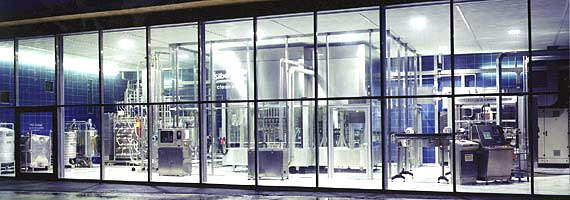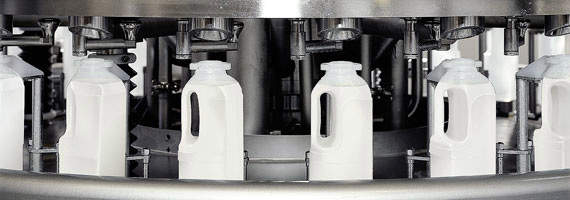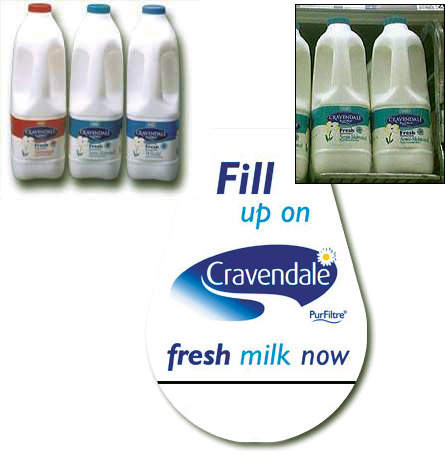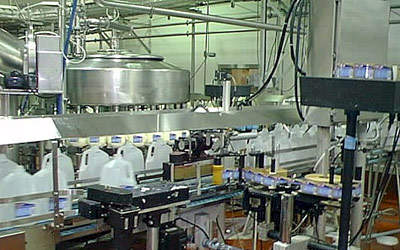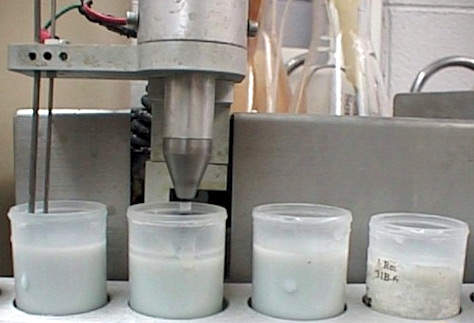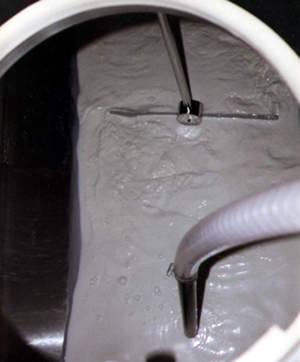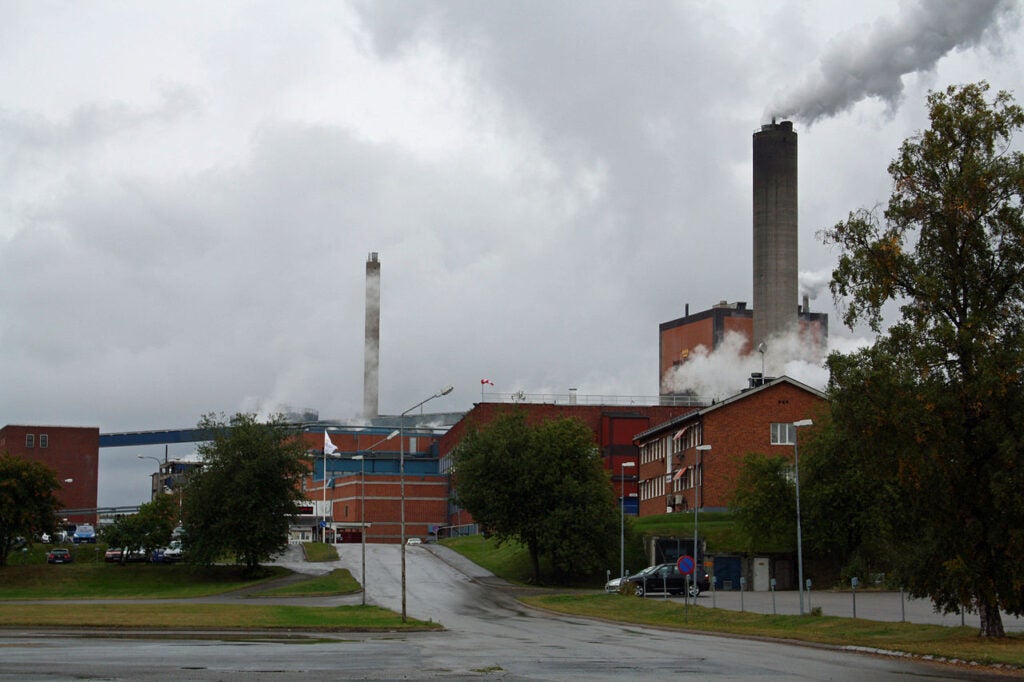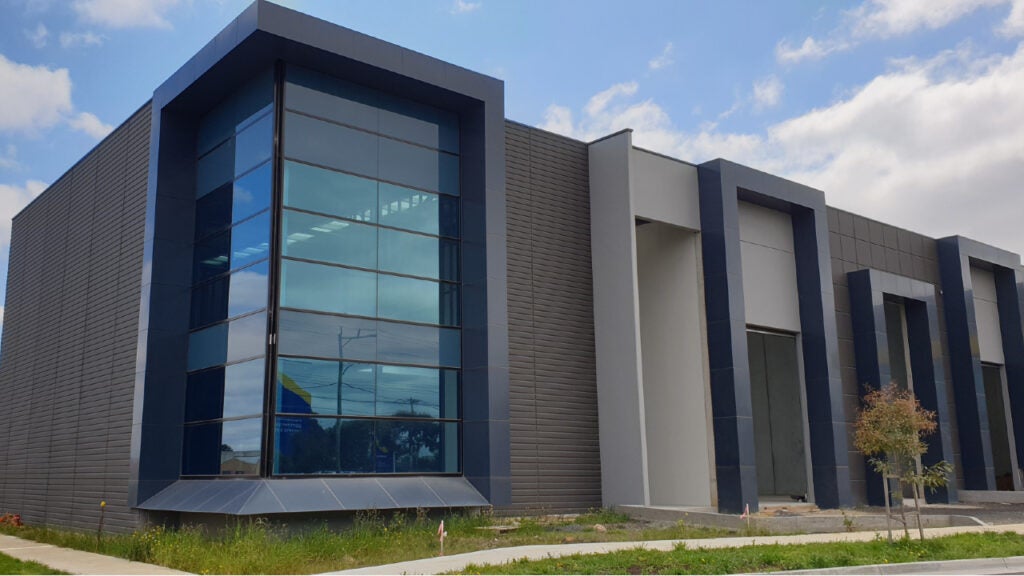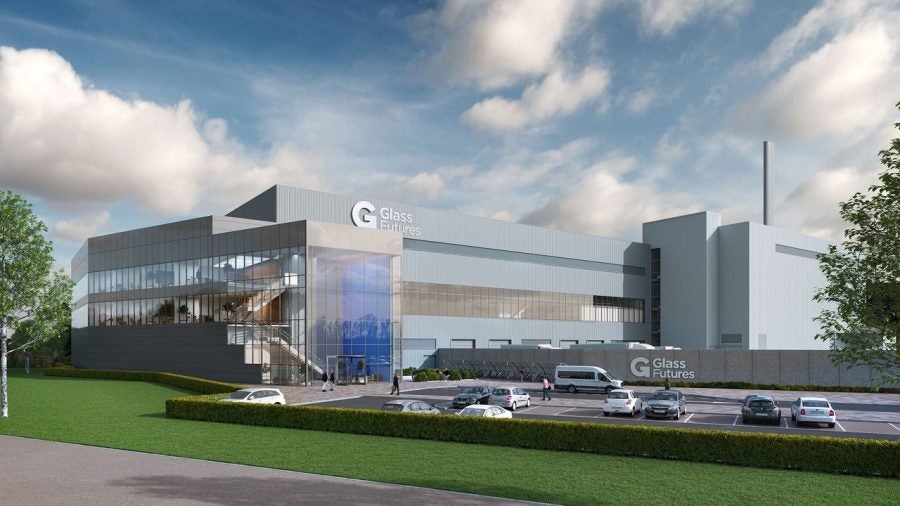Arla Foods plc (the UK division of the Arla Foods Group, which was formed following a merger with Express Dairies in March 2003) completed construction of its ‘Super Dairy’ in Stourton, Leeds, UK, in October 2004.
The new dairy is widely regarded as one of the largest in Europe and has rationalised the company’s liquid milk production across the north of England making the overall operation much more efficient. The dairy predominantly processes and packages liquid milk for supermarkets and also the extended shelf life (ESL) ‘Cravendale PurFiltre’ brand (packaging of Cravendale began in October 2005). The plant was mechanically complete by October 2004 and was in full production by early January 2005.
The facility received a boost, as in early in 2004 Arla Foods won a major contract as sole supplier of liquid milk to Asda-Walmart in the UK. In addition, sales of the premium ‘Cravendale PurFiltre’ brand grew by 23% in 2004 (accounting for 3% of fresh milk sales in the UK) and this prompted the installation of additional bottling capacity at the new dairy before it was completed and in production.
The opening of the Stourton dairy allowed a planned rationalisation of Arla Foods’ dairy operations across the UK. Arla Foods closed the dairy in Lancashire and the Hatfield Peverel-based bottling line in Essex, with the loss of 300 jobs. Cravendale PurFiltre was produced exclusively at its Hatfield Peverel dairy, where a special filtration process allows all nutrients to be filtered while removing bacteria that cause the milk to turn sour (giving much improved keeping properties). The production of Cravendale PurFiltre switched completely to the new Stourton dairy dairy in October 2005.
Stourton is better located, being next to Junction 44 of the M1 south of Leeds and close to the M62. This proximity to the road infrastructure offers unrivalled distribution access right across the UK, particularly for the Cravendale brand, which is fast becoming a leading brand in UK supermarkets with a growth in sales of 10% per year.
Construction of the dairy began in 2002 and was scheduled to take 27 months to complete. The initial investment for the facility was £50 million plus an additional £20m in mid-2004 following the success of the ‘Cravendale PurFiltre’ brand (overall investment of DKK 600 million). The dairy has a capacity of 250 million litres of milk per annum. Arla Foods also completed in May 2004 a £5m new 100,000ft² chilled warehouse and distribution facility adjacent to the dairy. This will not only handle liquid milk but also yellow fat products including Lurpak and Anchor (following an agreement between Arla Foods and Fonterra Co-op of New Zealand).
DAIRY CONTRACTORS AND CONSTRUCTION
Construction work for the new dairy and bottling facility at Stourton were completed towards the end of 2003. The new dairy was built on the site of an existing facility but did require extensive infrastructure upgrade such as roads, access, sewerage and water supply. Contractors for filling and packaging equipment included Krones of Germany, Syskron, Tetrapak and LogoPlastes of Portugal.
DAIRY BOTTLING LINES
Krones of Germany supplied the bottling lines for the dairy. There are two new bottling lines at the plant, each capable of an hourly output of 48,000 litres. Space was made available in the filling hall for a further two lines so that production capacity could be doubled with little problem.
The equipment being used was a new design from Krones since the hygiene requirements for bottling extended shelf life milk products are higher than normal. The newly developed system works on a weight filling basis and can fill low density polyethylene (LDPE) bottles using a cold aseptic filling process. The new lines fulfil the European Hygienic Engineering & Design Group requirements with respect to automation and clean in place (CIP). The injector, rinser, filler and capper are in a Bloc arrangement in a cleanroom environment for enhanced hygienic filling (EHF) of the product during the bottling process. The filling valve is a contact free arrangement to help meet the ultra-stringent hygiene requirements.
FILLING LINE AUTOMATION AND CONTROL SYSTEMS
The automation and control systems of the filling lines, including the line management system with order administration and enterprise resource planning (ERP) connection, were provided by Syskron, the IT subsidiary company of Krones.
The bottling lines fill products for different suppliers and also with varying fat content, making frequent product changes necessary. Syskron developed an on-the-fly changeover system which means the line does not have to stop. This enables quick batch changeovers in the lines: while the packers at the end of the line are still processing the preceding order, the labelling system is already processing the next order.
Syskron has integrated the bottling plants at Arla Foods using a fully automatic order management system directly linked to the company-wide order control ERP system. From ERP, the individual bottling orders are passed on to the line management system. They are subsequently divided into machine orders and, together with the product recipes, are then distributed to the individual machines, displayed there, and processed. At the end of the production process, the line management system sends the respective order information back to the ERP system. Thus, the dairy group receives detailed documentation of the bottling batches as well as the possibility of tracing all its production orders.
MILK PIPING AND STORAGE
Tetrapak provided the plant with piping, tank storage and chilled tank storage for milk prior to bottling and during the filtration and treatment process.
PLASTIC BOTTLE PPRODUCTION
The dairy will has its own bottle production plant supplied and installed by the Portuguese company LogoPlastes. This plant produces all of the low density polyethylene bottles used at the plant by an injection blow moulding process. The plant is capable of producing over 50,000 bottles per hour from pre-supplied performs.

